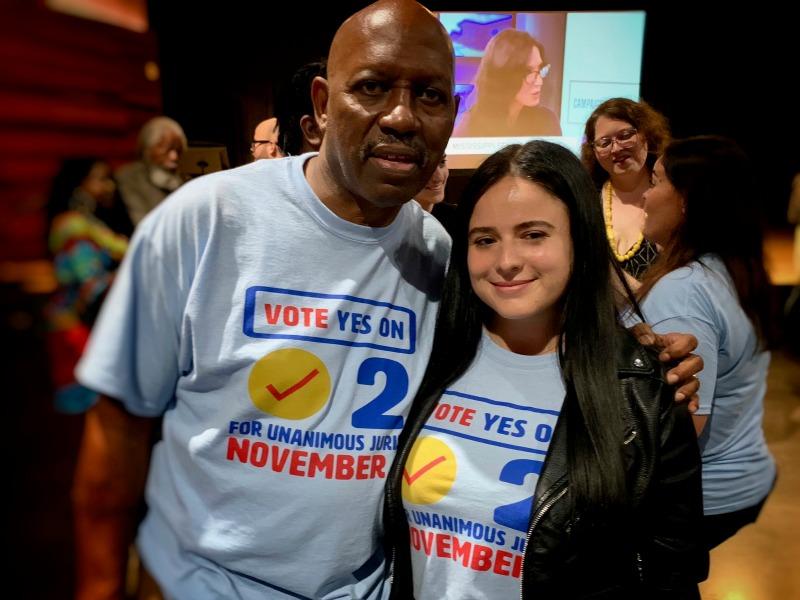Second-year law student part of movement to end split juries
Second-year Tulane Law student Marissa Shevins has been hard at work this political season.
Her efforts working as an intern with the Unanimous Jury Coalition paid off on Tuesday (Nov. 6) when Louisiana voters passed a ballot measure that allow it to join the 48 other states in requiring unanimous jury convictions in felony cases.
Amendment 2 largely passed in a bipartisan statewide effort, supported by liberals as well as conservative groups. Both Tulane Law School Dean David Meyer and Loyola University School of Law Dean Madeleine Landrieu signed a letter supporting the measure.
To educate the public, Shevins organized a phone banking event at Tulane Law School to explain the ballot measure to voters. She also worked with community outreach, organizing events and volunteers and distributing materials.
“Through my classes at Tulane such as Fourteenth Amendment, Criminal law, and Fair Housing Litigation, as well as my work with the Public Interest Law Foundation, I have become very focused on human and civil rights,” said Shevins.
The passage of Amendment 2 ends a Jim-Crow era law created specifically to disenfranchise African Americans. Split juries have restricted the state’s legal system for more than a century, with 10-2 juries allowed to convict even in cases of life without parole.
Advocates hope efforts to revamp Louisiana’s criminal justice system will be buoyed by Amendment 2’s passage, too. Louisiana recently went from the state having the highest incarceration rate to the second highest.
Shevins worked for several months with the Unanimous Jury Coalition, a coalition made up of the combined efforts of sixteen social justice organizations such as the Southern Poverty Law center, VERA, Innocence Project New Orleans, Orleans Public Defenders, Courtwatch Nola, the ACLU of Louisiana and more.
Advocates like Norris Henderson, director of the Voice of the Ex-Offender (VOTE) and Safe Streets Strong Communities, hope that Amendment 2 will be the catalyst to completely change Louisiana’s record of incarcerating inmates for life. Louisiana beats Texas, Mississippi, Arkansas and Alabama combined in the number of inmates serving life sentences.
Working with the coalition was a great training ground for Shevins, who hopes to work in civil rights policy and criminal justice reform. Next summer, she will be working with the Texas Criminal Justice Coalition.

